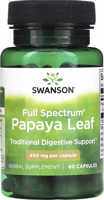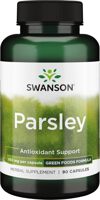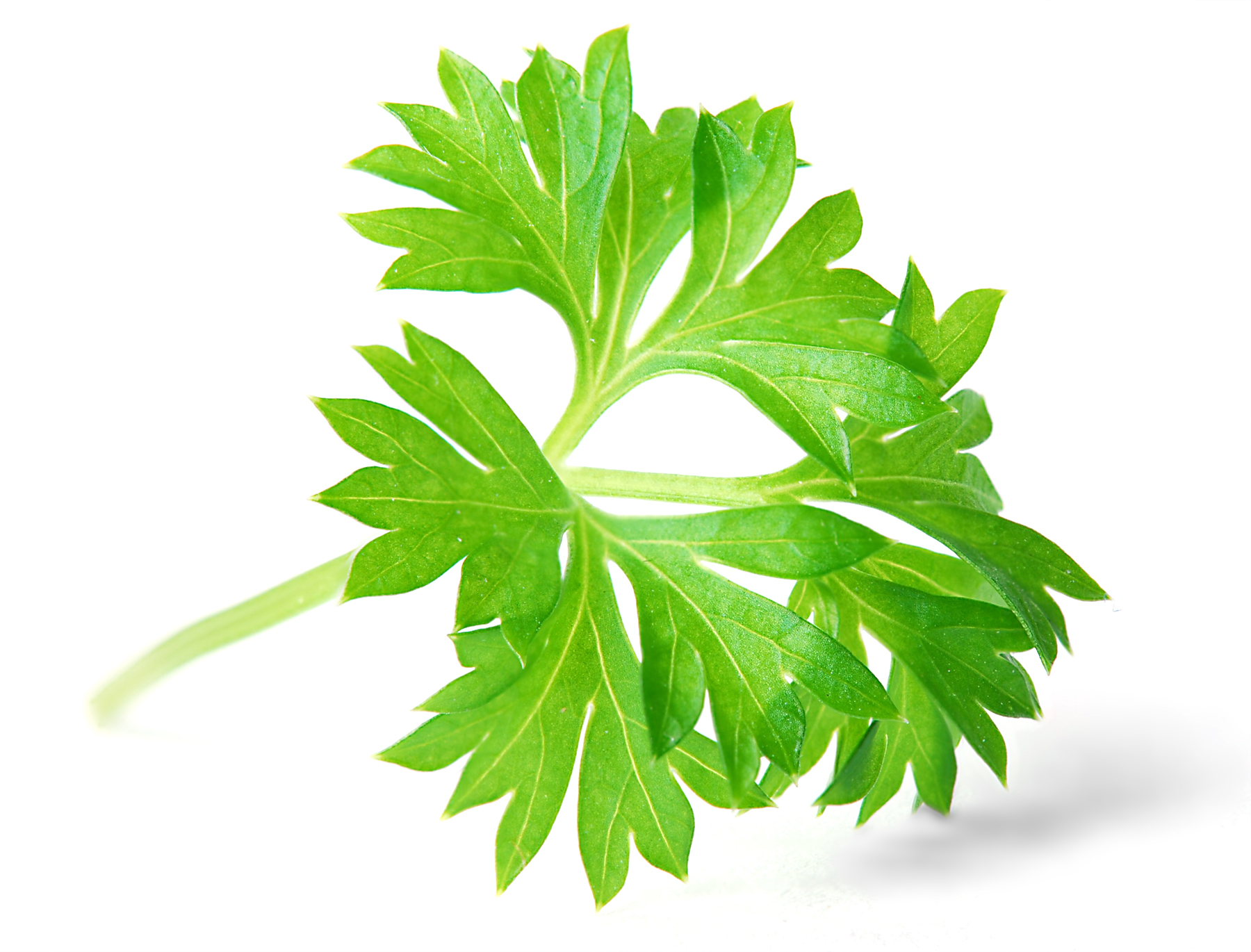Parsley is an herb that has either bright green curly or flat leaves vertically arranged stems. Known as Petroselinum, parsley is in the Apiaceae family, which is native to the Mediterranean but can be found throughout the world. The parts of the plant used for medicinal purposes are the leaf, root, and seed.
Parsley uses
The leaves and roots are used as garnish and flavoring in food. The seed's oil is used as a fragrance in perfumes and soaps.
Medicinal
Urinary tract infections
Kidney stones (parsley juice)
Constipation
Indigestion
Jaundice
Gas (seeds)
Dysentery and gallstones (parsley tea)
Fluid retention
Osteoarthritis
Anemia
High blood pressure
Prostate, liver, and spleen problems
Skin care: insect bites, chapped skin, tumors, lice (bruised leaves)
Hair growth stimulation (lotion)
Other uses
Menstruation symptom treatment (parsley oil)
Facilitating abortions
Aphrodisiac
Expectorant
Antimicrobial
Breath freshener
Does parsley work
Parsley may work for:
Indigestion
Boosting urine output
Spasm control
Facilitating menstruation
Boosting appetite
There is not enough evidence to recommend parsley for:
Urinary tract infections
Chapped skin, bruises, tumors, insect bites, and other skin problems
Digestive problems
Menstrual problems
Liver disorders
Asthma
Cough
Fluid retention
Kidney stones
Interactions
Do not take the following medications with parsley:
Warfarin: Parsley interferes with warfarin's ability to control blood clotting.
Water pills: Taking parsley with water pills may cause too much water loss.
Aspirin: The pain killer may aggravate or intensify a parsley allergy.
Safety concerns and side effects
Short-term medicinal use is generally safe.
Parsley can cause topical allergies.
Eating copious amounts of parsley can result in anemia, liver, and kidney problems.
Parsley seed oil can cause sun sensitivity.
Do not use parsley leaves or roots on skin.
Eating a normal amount of parsley is safe for pregnant and breastfeeding women. Do not take medicinal doses. Higher doses could cause contractions, abortion, and menstruation.
Do not take dong quai and An-Tai-Yin, an herbal remedy with parsley, during the first three months of pregnancy. It may cause birth defects.
Parsley oil could cause a variety of side effects including loss of balance, headaches, convulsions, and kidney problems.
Do not eat too much parsley if you have high blood pressure. The herb may cause sodium retention.
Parsley may cause fluid retention. Do not eat too much parsley if you have edema.
Chemicals in parsley may exacerbate kidney disease.
Plants similar to parsley
It's important to use caution when gathering wild parsley since three poisonous plants are similar to this common shrub.
Aethusa cynapium
Also called dog poison, fool's parsley, and small hemlock, this plant's leaves have shiny, yellowish-green backsides and the flowers are white, while parsley's leaves are dull at the back and the flowers are yellowish.
Conium maculatum
This is also called poison hemlock, water hemlock, or poison parsley. The poison hemlock plant is bigger than parsley's. It has large feather-like leaves with tiny leaflets, a hollow, purple-spotted stem, and small white flowers arranged in clusters. All parts of this plant are poisonous.[3]
Cicuta maculata
Also called water hemlock, this herb has short tuberous roots and hollow stems that have purple blotches or stripes. The leaves alternate and the clustered flowers are small and white. There are also tiny leaflets. Conium and Cicuta poisoning can cause vomiting, diarrhea, paralysis, dilated pupils, convulsions, weakness, and death.[2]
Considerations
Supplements can act like drugs if they are used in large amounts.
Dosages for parsley have not been established. Dosage depends on many variables, including age and health status. Consult your healthcare provider to find out the best dosage for you.
Natural doesn't necessarily mean safe. Follow all directions and consult a qualified healthcare professional for more information before using natural products, including parsley. Parsley in supplement form is not regulated by the FDA. Talk to your doctor before changing your diet or taking a new supplement.
Resources
WebMD.com; "Find a vitamin or supplement: Parsley"
Drugs.com; "Parsley"
North Carolina Cooperative Extension; Poisonous Plants of North Carolina; "Conium Maculatum"
North Carolina Cooperative Extension; Poisonous Plants of North Carolina; "Cicuta Maculata"
Parsley News on PricePlow
-
Dec 12, 2024 
YouTube Video
Magnum Nutraceuticals NEKTR: A Premium, Natural Greens Formula | Now in New Passionfruit Flavor! -
Jun 10, 2023 
Product News
Swanson Parsley Leaf, Full Spectrum was created.
Category: Parsley -
Apr 20, 2023 
Product News
Swanson Parsley was created.
Categories: Antioxidants, Parsley
Sign up for future Parsley news!
Click the button below to sign up for future Parsley news, deals, coupons, and reviews!
Parsley Reviews & Videos
-
Dec 12, 2024Magnum Nutraceuticals NEKTR: A Premium, Natural Greens Formula | Now in New Passionfruit Flavor!
Subscribe for more Parsley news and alerts!
Subscribe to PricePlow on YouTube, follow PricePlow on Instagram or click the button below to sign up for our latest Parsley news and reviews!






